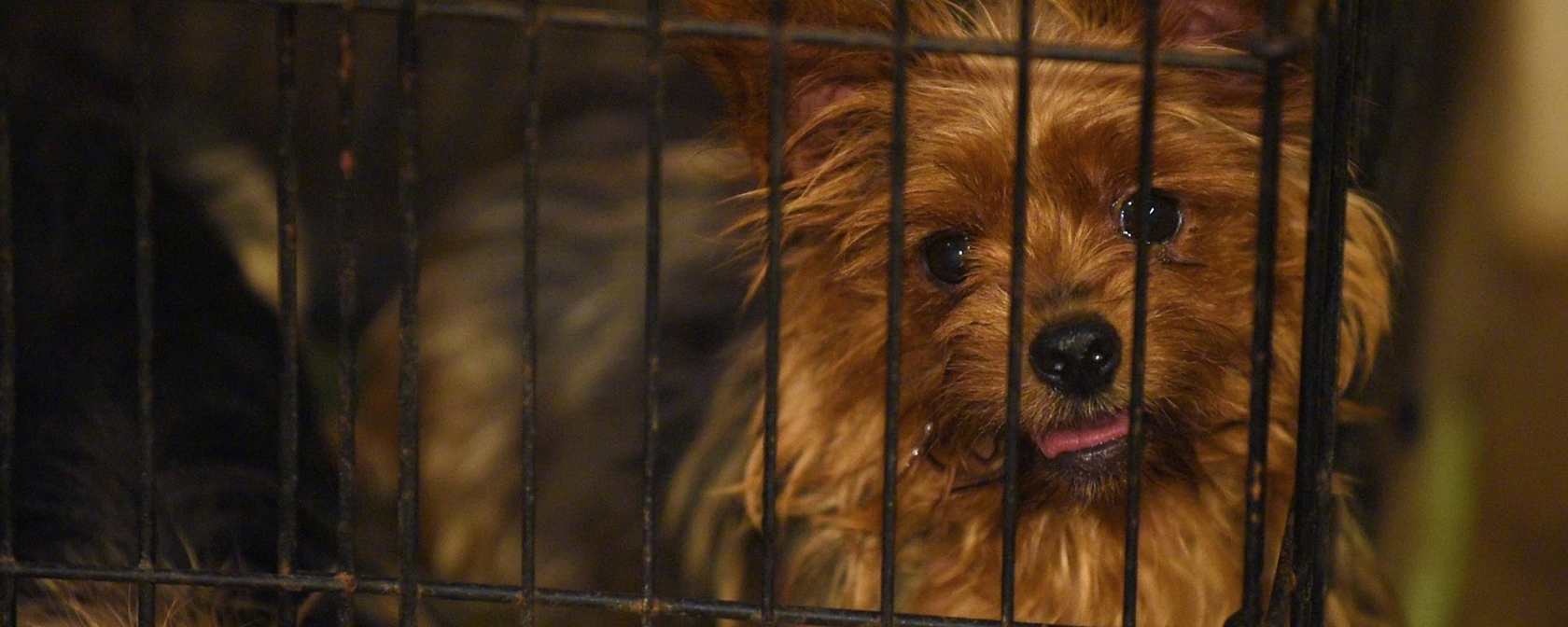By Sara Amundson and Kitty Block
We all know what dogs love: a comfortable napping spot, a romp in the grass, a kind touch and the safety and security of a caring environment. But thousands of dogs in commercial breeding operations licensed by the U.S. Department of Agriculture to sell to pet stores and online have none of these comforts.
Dogs are stacked in cramped wire cages with no room to run or play. Mother dogs are bred over and over for years to the point of exhaustion. Yet many puppy mills that continue these practices are still licensed by the USDA and in “good” standing, because this is currently legal under the federal Animal Welfare Act. The Puppy Protection Act (H.R. 2840/S. 1385)—a bill introduced this week by Sen. Richard Durbin, D-Ill., and Reps. Brian Fitzpatrick, R-Pa., Charlie Crist, D-Fla., Guy Reschenthaler, R-Pa. and Jim McGovern, D-Mass.—promises to improve how these dogs are treated.
The Puppy Protection Act would amend the Animal Welfare Act to require significant improvements to the standards of care required for licensed dog breeders. Large-scale commercial dog breeders who sell to pet stores, brokers or online sight-unseen are required to obtain a USDA license, undergo regular inspections and comply with standards of care defined in the Animal Welfare Act—but under the minimal standards now in place, breeders can keep dogs in cramped cages without protection from bitter cold or scorching hot weather. They can breed female dogs again and again until their bodies give out, even if the dogs have congenital defects that they could pass on to their puppies, generation after generation; once they are worn out, these mother dogs can be killed or sold at auction.
The Puppy Protection Act would require more spacious dog runs, solid floors instead of wire that hurts dogs’ paws, and feedings at least twice per day. Puppy millers would also have to make a reasonable effort to find retired breeding dogs a home or a rescue placement instead of just killing them.
There is a strong public health component to this legislation, too. Right now, the USDA allows commercial breeders to avoid taking injured or sick dogs to a veterinarian for hands-on diagnosis and care. This can lead to illnesses going unnoticed or incorrectly diagnosed and sick dogs treated for symptoms only—which could lead to deadly outbreaks of zoonotic disease. Some of these diseases—such as brucellosis, giardiasis and campylobacteriosis—are not only dangerous for animals but harmful if transmitted to humans. Dozens of people have landed in the hospital after contracting a multi-drug resistant Campylobacter “superbug” from pet store dogs, according to the Centers for Disease Control, which studied two different outbreaks of the disease.
As long as dogs continue to be bred in commercial breeding operations, improving their quality of life is the right thing to do. The Puppy Protection Act would provide a stronger standard of care and treatment for commercial dog breeding operations throughout the country and ensure that dogs raised in these operations are healthier and better socialized. Setting the animal welfare bar higher in this area should not be controversial, and we’re confident that we’ll succeed in gaining substantial bipartisan support for it in both the Senate and the House. You can help ensure that happens by asking your legislators to cosponsor the bill and help save thousands of dogs from suffering as a result of the inhumane conditions at these facilities.
Kitty Block is President and CEO of the Humane Society of the United States.




